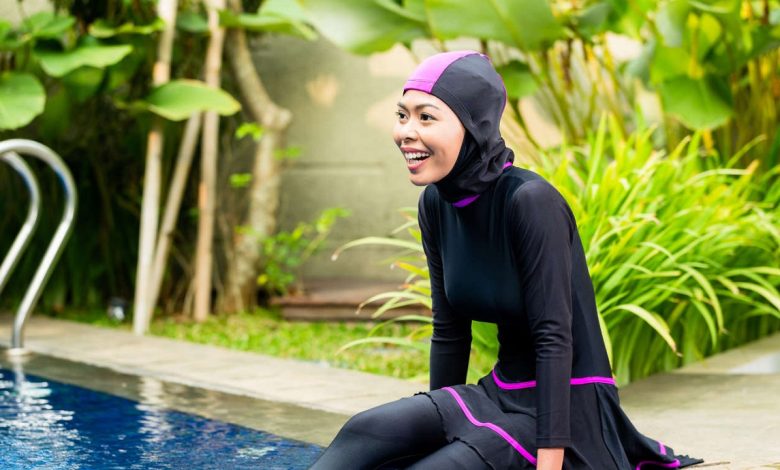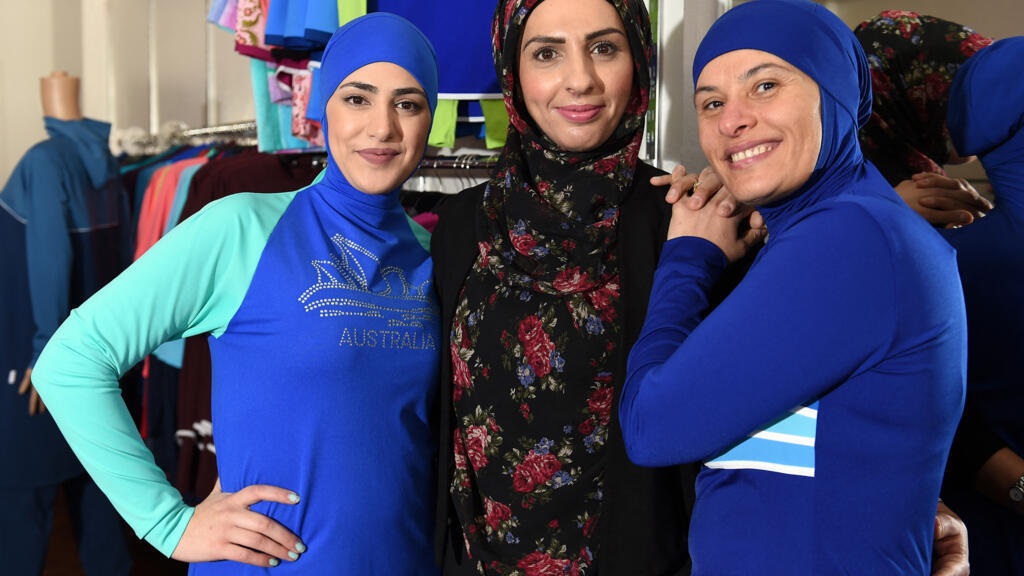Muslim Women and Swimming in U.S. Hotels: Can You Wear a Burkini?
Exploring How Hijabi Women Navigate Swimming in American Hotels and the Acceptance of the Burkini.

In the United States, modesty in swimwear—particularly the use of the burkini by Muslim women—has sparked both cultural curiosity and policy debates. For many Muslim women who wear the hijab, maintaining modesty while enjoying leisure activities such as swimming presents unique challenges, especially when staying at hotels with strict or ambiguous swimwear rules.
Are There Hotels in the U.S. That Accept Burkinis?
Yes, there are hotels in the United States that accept the burkini, especially in metropolitan, diverse, and culturally inclusive cities such as New York, Chicago, Los Angeles, and Houston. These urban areas typically host major international hotel chains (like Hilton, Marriott, Hyatt, and Sheraton) that operate under policies respecting religious and cultural diversity. These hotels are more likely to allow burkinis in their pools, especially when labeled as “family-friendly” or located near Muslim communities.
However, burkini acceptance is not universal. Some hotel pools—particularly in smaller towns or upscale resorts—might restrict access to guests not wearing traditional swimwear (such as one-piece or two-piece swimsuits made of specific swim fabrics). These restrictions are often justified on the grounds of health codes, fabric material, or “pool policy” rather than religion—but their impact on Muslim women is significant.

How Do Hijabi Women Manage Swimming in U.S. Hotels?
Muslim women who wish to maintain modesty while swimming in the U.S. often adopt several strategies:
-
Calling Ahead: Before booking, many Muslim women contact hotels in advance to ask about their swimwear policy. This helps avoid uncomfortable confrontations at the pool.
-
Choosing Private Villas or Airbnb Stays: To bypass public pool restrictions, some families rent homes with private pools, allowing complete comfort and modesty.
-
Seeking Muslim-Friendly or Halal-Certified Hotels: Though rare in the U.S., some hotels market themselves as “Muslim-friendly”, especially in areas with large Muslim populations like Dearborn (Michigan), Paterson (New Jersey), or Anaheim (California).
-
Swimming at Off-Peak Hours: To minimize attention or crowds, some women swim early in the morning or late at night when the pool is less populated.
-
Wearing Swimwear with Certified Materials: Some hotel policies are only concerned with non-swim fabrics (e.g., cotton). Muslim women often purchase burkinis made of chlorine-resistant lycra, labeled as professional swimwear.
-
Finding Women-Only Pools or Gyms: In rare but growing cases, women-only swim hours or private clubs allow hijabi women to swim freely. This is more common in YMCA branches, community centers, or Muslim-owned gyms.
Legal Context: Are Burkinis Protected by Law in the U.S.?
In general, the First Amendment of the U.S. Constitution protects religious expression, which may include religious clothing like the hijab or burkini. However, private businesses (like hotels) may set their own rules, provided they do not explicitly discriminate based on religion. If a burkini ban appears to target a specific religion, legal challenges can be pursued, but enforcement depends on local laws and individual circumstances.

Real Experiences
Numerous Muslim women in the U.S. share experiences of both acceptance and rejection:
-
Positive: “We stayed at a Hilton in San Diego, and I swam in a burkini every day with no issue. The staff was respectful and even offered us extra towels,” said Lina, a visitor from Dubai.
-
Negative: “At a luxury resort in Miami, I was told I couldn’t swim unless I wore a ‘normal’ swimsuit. It was embarrassing,” shared Amal, a hijabi from Chicago.
These mixed stories highlight the need for better public education on inclusive swimwear and cultural sensitivity in hospitality.
While the United States generally values religious freedom, acceptance of the burkini at hotel pools remains inconsistent. For Muslim women travelers, being proactive—researching policies, choosing inclusive hotels, and knowing their rights—can make a significant difference. As awareness grows and demand increases, more American hotels are beginning to adapt and become more inclusive of modest swimwear.



